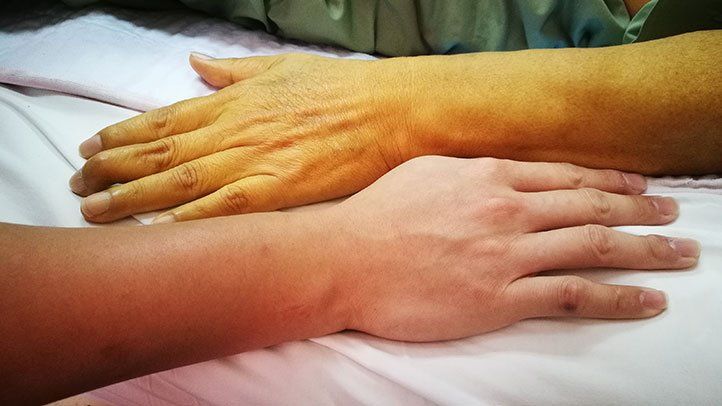Pancreatic cancer is one of the most dangerous and deadly forms of cancer, claiming the lives of nearly 10,000 people each year. According to Cancer Research UK, while pancreatic cancer is the 10th most common cancer, it ranks as the fifth leading cause of cancer-related deaths. The reason for this alarming statistic is largely due to the fact that pancreatic cancer often goes undetected until it has reached an advanced stage, making early detection critical.
The pancreas, located deep in the abdomen, is a vital organ responsible for producing digestive enzymes and hormones, but its position makes it hard to detect issues early on.
Unlike many other cancers, pancreatic cancer doesn’t typically show noticeable symptoms in its initial stages. By the time most people seek medical attention, the disease has often spread, making it harder to treat successfully. However, paying attention to the subtle early signs can increase the chances of early diagnosis and intervention.
Dr. Alexis Missick, a healthcare professional with UK Meds, warns about the subtle yet significant early warning signs of pancreatic cancer that everyone should be vigilant about. Recognizing these symptoms early can lead to earlier diagnosis and better treatment outcomes.
- Unexpected Weight Loss
Unexplained weight loss is one of the most concerning early signs of pancreatic cancer. Dr. Missick explains, “If you find yourself losing weight without a change in diet or exercise habits, it could be a sign that something is wrong.” This weight loss is typically due to the cancer’s impact on the pancreas, which affects the body’s ability to properly digest food. As the pancreas becomes less effective at producing digestive enzymes, the body struggles to absorb nutrients, leading to rapid weight loss. If you notice unexplained weight loss, it’s essential to consult a healthcare professional promptly.
- Jaundice
Another significant early symptom of pancreatic cancer is jaundice, which causes the skin and eyes to take on a yellowish tint. Dr. Missick notes, “If you notice yellowing of the skin or eyes, darker urine, or pale stools, this could be a warning sign.” Jaundice occurs when the tumor blocks the bile ducts, preventing the flow of bile and causing a buildup of bilirubin in the bloodstream. This leads to the yellowish discoloration of the skin and eyes. Jaundice is often a sign of a more advanced stage of the disease, but it can also be an early indicator in some cases.
- Back And Stomach Pain
Back and stomach pain are common symptoms of pancreatic cancer, especially as the tumor grows. Dr. Missick explains, “If you experience pain in your back or abdomen that comes and goes, particularly after eating or lying down, it’s important not to ignore it.” This pain often worsens as the cancer progresses. The pancreas is located deep in the abdomen, so the pain may be felt in the back or in the upper part of the stomach. The pain may also feel more intense after meals because the digestive process stresses the affected pancreas.
Other Symptoms To Watch Out For:
While the three signs mentioned above are the most common early warning signs of pancreatic cancer, there are other symptoms that could indicate the disease. These include:
Fatigue: Persistent tiredness that doesn’t improve with rest.
Loss Of Appetite: An unexplained decrease in appetite or difficulty eating.
Digestive Issues: Bloating, nausea, or vomiting that doesn’t seem to go away.
Changes In Bowel Movements:
Unexplained diarrhea or constipation, or stools that are particularly light-colored or float.
Why Early Detection Matters
Pancreatic cancer is notorious for being difficult to detect early. By the time symptoms are noticeable, the disease has often already reached an advanced stage, making it harder to treat. That’s why awareness of the early signs is crucial. Early detection, even if the cancer is still in its early stages, significantly improves the chances of successful treatment and survival. While there is no routine screening test for pancreatic cancer, paying attention to these symptoms and seeking medical advice can make all the difference.
Conclusion
Pancreatic cancer is one of the deadliest cancers, but understanding the early warning signs can help save lives. Unexplained weight loss, jaundice, and back or stomach pain are all red flags that shouldn’t be ignored. If you experience any of these symptoms, it’s essential to seek medical advice promptly. Early diagnosis and treatment are key to improving outcomes for those affected by this deadly disease. Stay vigilant, and if in doubt, consult a healthcare professional to ensure that you are not overlooking any potential health risks.

